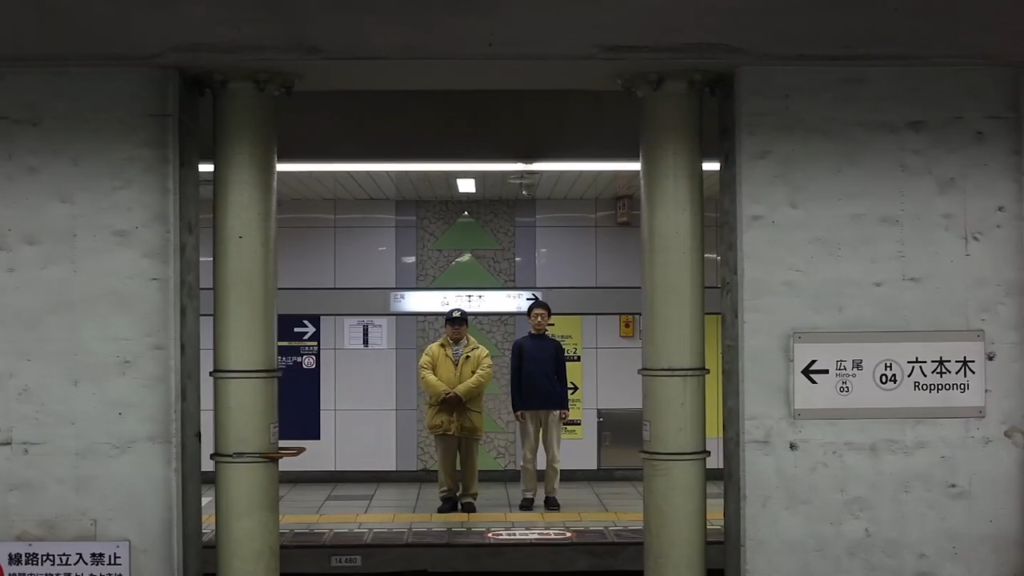Film Review: Me and the Cult Leader (2020)
A Modern Report on the Banality of Evil

In 1995 the Tokyo subway system was struck by an attack of sarin gas organized by the religious cult Aum Shinrikyo. It led to sixteen deaths and the injuring of over a thousand commuters, many of whom would have long term physical problems as a result of the attack. The group’s leader and guru Shoko Asahara was arrested and executed in 2018, along with twelve other members of the cult. The organisation, however, was not outlawed. It changed its name to Aleph and still has over two thousand members.
Filmmaker and writer Atsushi Sakahara was himself a victim of the attack in Tokyo’s subway system. He still suffers from fatigue, occasional paralysis and PTSD. Following a year of negotiation Hiroshi Araki, an executive of Aleph, has agreed to an on camera interview. The two stroll around the compound in Tokyo of the cult. They visit their hometowns which are located in the same area and their old university, which they both attended. There’s something intimate and disarming about this pairing. Sakahara is a gregarious, humorous affable presence, whereas Araki is socially awkward, frequently monosyllabic and frequently seems quite dim. It’s as if the popular kid at school has taken the oddball under his wing in a weird take on Rob Brydon and Steve Coogan’s The Trip.

But underneath the stone skipping by the lake and the outing to buy Araki a new jacket, Sakahara is delicately working his way towards what he hopes will be the center of the enigma. Why did this cult do what it did? How can someone like Araki still be a part of it? How can Araki justify himself to a man who was almost killed by the cult? Sakahara probes gently at first, trying to win Araki’s confidence, but as the film and the journey progresses becomes increasingly exasperated by Araki’s bland responses. He introduces his parents to Araki and as the old couple speak of their suffering at what happened to their son, Sakahara explodes: ‘Maybe it was my fault because I was stupid and got on that train.’
The problem the film ends up contending with is that there is no there; the heart of darkness is empty. In other words, plenty of banality and not enough evil. Araki gets visibly upset when he thinks about the family he has renounced; he seeks to justify himself with a story of his sick brother who recovered from what they feared had been cancer (it wasn’t as it turned out) and he even visits his own parents on Sakahara’s filming, an encounter which Sakahara doesn’t record. But there is very little context. The documentary assumes a level of knowledge about the Sarin attacks which presumably won’t be an issue for its domestic audience, but non-Japanese viewers will find themselves googling to find out more. What is unclear is the level of Araki’s involvement in the actual attacks – if any, beyond membership of the group. Neither do you get any real form to the rebuttal of the group itself. Aside from a renouncement of the world, there is no talk of the dark conspiracy theories against Jews and the FreeMasons, or the apocalyptic vision which led to the attacks.
And yet it is mainly because of Sakahara’s baffled persistence that the film achieves a growing power. He’s obviously desperate to find some redemption for Araki: he wants to like him and wants Araki to acknowledge his suffering. Araki in the end can offer only bromides. He is a man who has renounced engagement with the world and it provides him with the emotional empathy of one of the pebbles he so skilfully skips across the lake.
The film world-premiered in the “Ghosts & Apparitions” slate aof the Sheffield DocFest.
Original Title: Aganai
Country: Japan
Language: Japanese
Runtime: 96 minutes
Production: Good People Inc.
Director & producer: Atsushi Sakahara
Producer: Etsuko Matsuo
Co-producer: Pearl Chan
Editor: Junko Watanabe
Cinematographer: Tatsuya Yamada & Masato takashima
Sound: Ryoma Ochiai
Music; Soulcolor
Post-production supervisor: Tsuyoshi Ten
Re-recording mixer: Androine Lab
Featuring: Hiroshi Araki, Takeshi Sakahara, Takako Sakahara, Atsushi Sakahara
World sales: The Hong Kong International Film festival Collection/ Good Movie Media
















